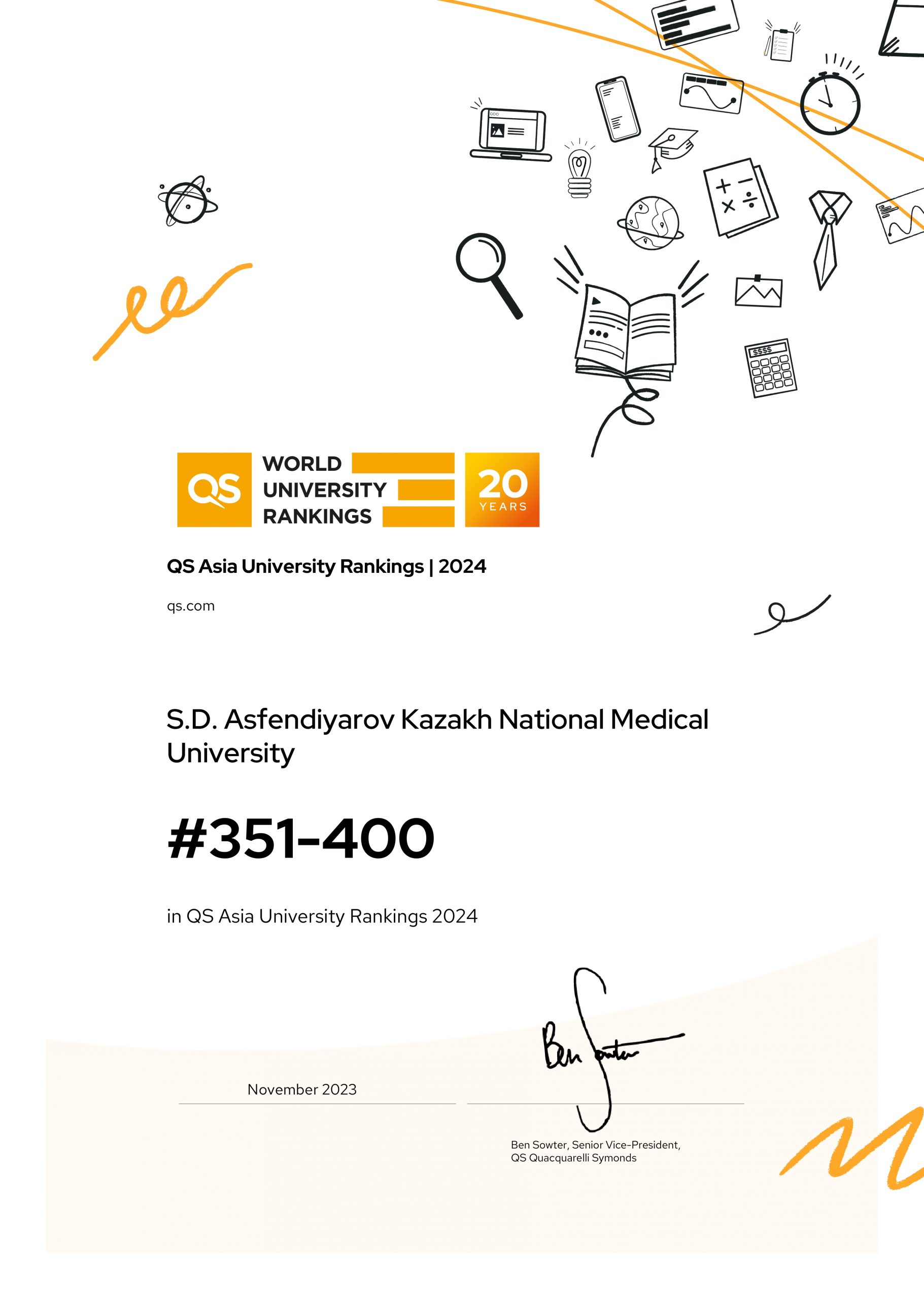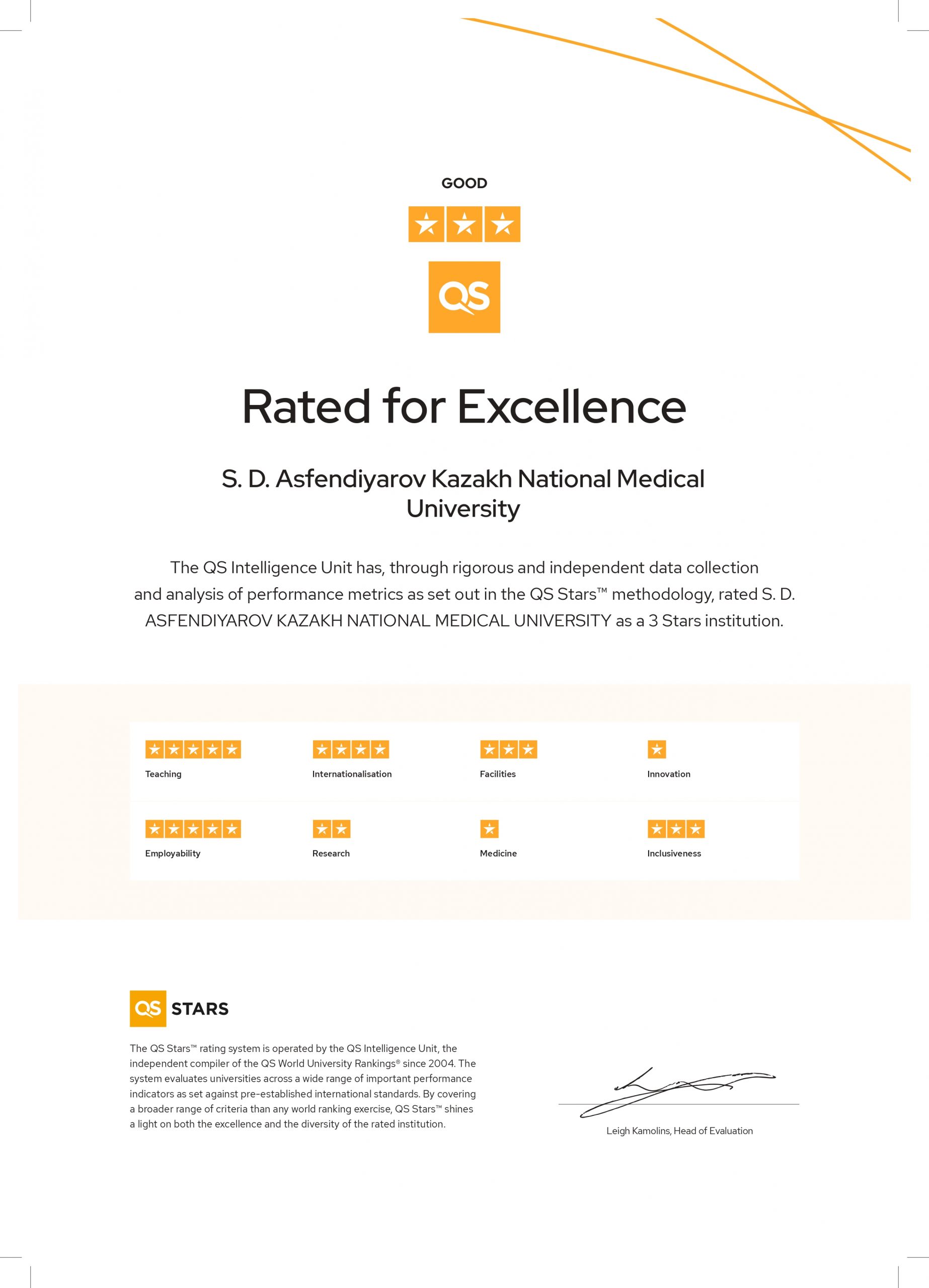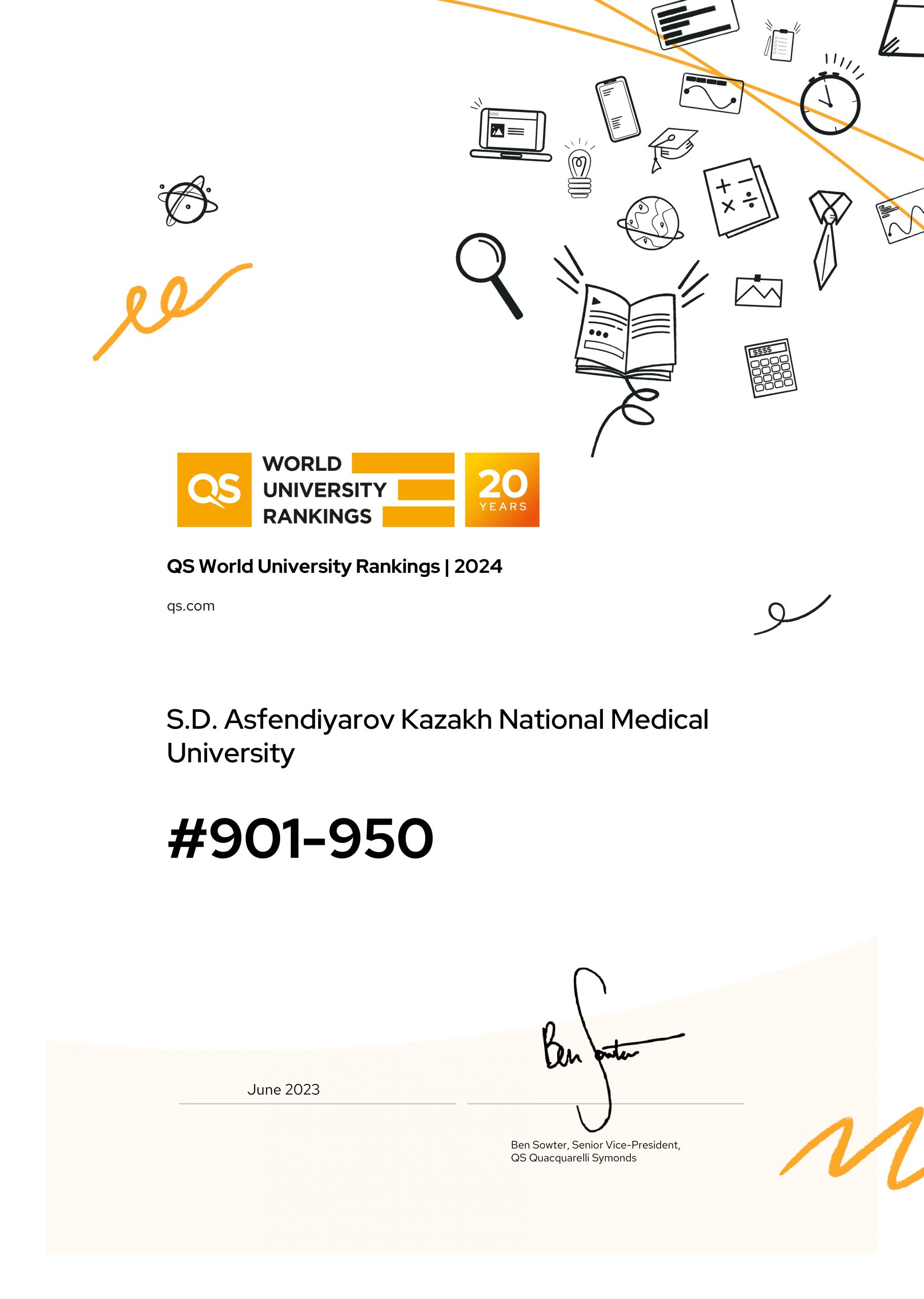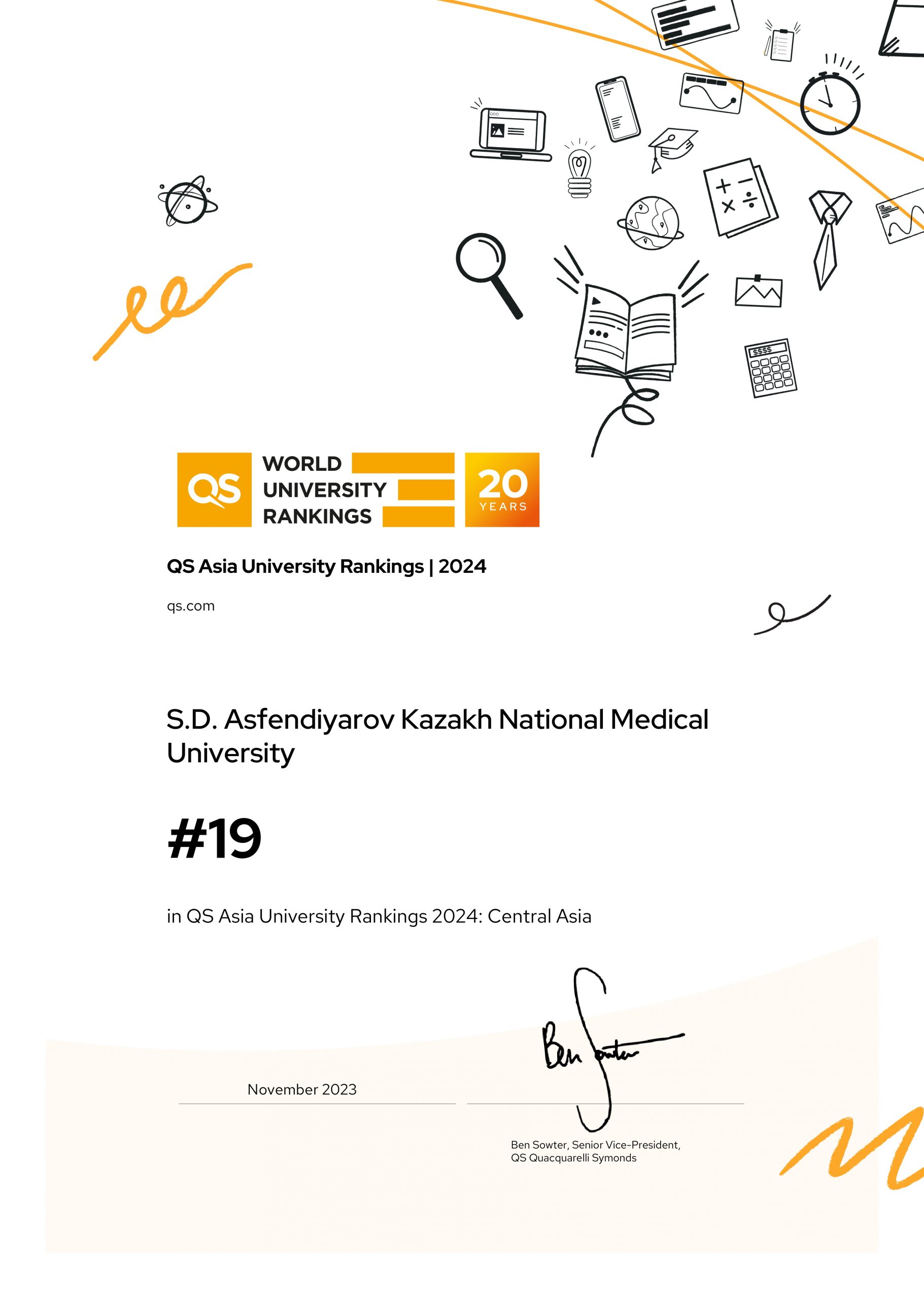The quality management system of KazNMU specialists training today is aimed at the realization of strategic and medium-term goals by forming and defining objectives to achieve and improve the quality of educational activities within the framework of strategic management, implemented through comprehensive plans, priority areas of development of the university and its structural units. In this regard, the process of QMS implementation in KazNMU was started in 2005.
Annually KazNMU confirms the ability of the system to achieve the agreed requirements for the product or services within the scope of the system, the Policy of the organization and its objectives to the international certification body.
The current Model of KazNMU Quality Management System is aimed at creation and improvement of mechanisms of formation of internal guarantees of quality assurance of educational services. Various tools and methods of quality management are used: monitoring of compliance of the educational process with state standards of basic educational programs (through internal audits), assessment of satisfaction of students, teaching staff (by questionnaire method), monitoring and evaluation of the maturity of the quality management system of the structural units of the university (in case of external audit by the certification body), QMS analysis.
At present, KazNMU has created and successfully operates the system of internal control through the activities of internal auditors who check the activities of structural units for compliance of QMS with the requirements of international standards in the field of quality.
Objective:
Achievement of continuous improvement of the University’s activity by ensuring proper functioning and development of the quality management system.
Objectives:
- To identify on a systematic basis opportunities to improve the University’s activities, including the achievement of target indicators and result indicators of the strategic plan;
- Ensuring the functioning and development of QMS, including the need to comply with the requirements of ISO 9001:2015;
- Ensuring and controlling the quality of academic, scientific, clinical and educational activities;
- Fulfillment of the need, development of proposals and participation in the creation of the required policies and procedures in the areas of the University’s activities;
- Development, implementation, monitoring and updating of process/procedure maps, including processes of interaction between structural units;
- Management of documented information of the QMS;
- Organization and conduct of internal audits;
- Training of personnel in the field of QMS.
Main directions of activity and tasks of QMS department
Main directions and tasks of QMS department
Quality Management System (QMS) department plays a key role in ensuring efficiency and compliance with quality standards in the organization. Here are the main directions and tasks of QMS department:
- Development and implementation of the quality management system.
- training and development of personnel.
- Planning and realization of internal audits.
- Documentation management.
- Conducting data analysis and continuous improvement.
- Cooperation with external organizations and auditors.
Training and Development
Every year the Quality Management System Department plans to conduct corporate training for internal auditors in accordance with ISO 9001:2015 standard.
The purpose of the course is to train internal auditors in methods of effective internal audit of quality management systems, as well as learning the requirements of the international standard ISO 9001.
As part of the course, participants will be familiarized with:
- an overview of the requirements of the standard from the point of view of conducting an audit;
- audit planning: audit program and plan;
- audit preparation: high and low level questionnaires;
- internal audit tactics and techniques;
- psychological aspects, interviewing techniques;
- practice of dealing with situations and non-conformities, drawing up protocols of non-conformities;
- development and analysis of corrective actions;
- audit reporting.
- Upon the results of the training, the participants will receive a certificate.

Composition of the department:
Chief specialists — Amerzhanova A.Zh
Phone: (ext.73-84)
Email: [email protected]
Chief specialists – Mukasheva G.B
Phone: (ext.74-72)
Email: [email protected]
| Content | ||
|
|
||
| This is the highest level of document that establishes the overall quality objectives and direction of the organization. The quality policy is usually developed by top management and serves as the basis for developing quality strategies and objectives. |
||
|
|
||
| Procedures are the next level of documentation that describe the specific steps and actions required to accomplish certain processes or tasks. They provide standardization and streamlining of activities within the organization. |
||
|
|
||
| These documents provide more detailed instructions and guidelines for performing specific tasks or operations within procedures. Instructions may include technical details, equipment requirements, inspection methods, and other specific information. |
||
|
|
||
| These documents describe how to use specific products or services created by the organization and may include instructions for installation, configuration, operation, etc. User manuals are aimed at ensuring quality use of the product or service by customers. |
||
|
|
||
| Records are information created or obtained during the performance of procedures or actions. This may include audit reports, inspection results, equipment calibration data, etc. Records are important to confirm compliance with standards and regulations, as well as to ensure traceability and accountability. |





